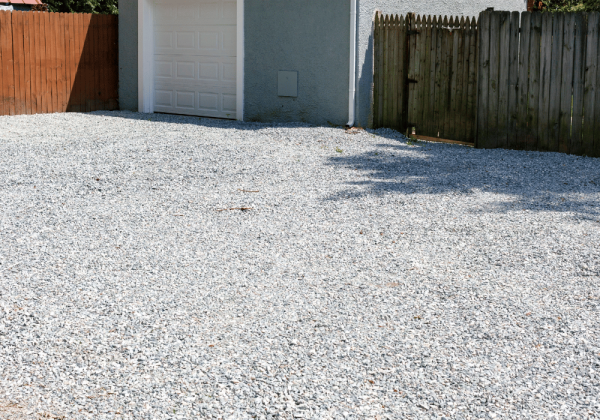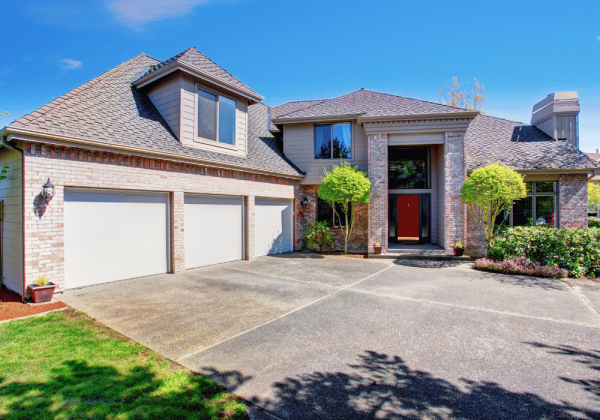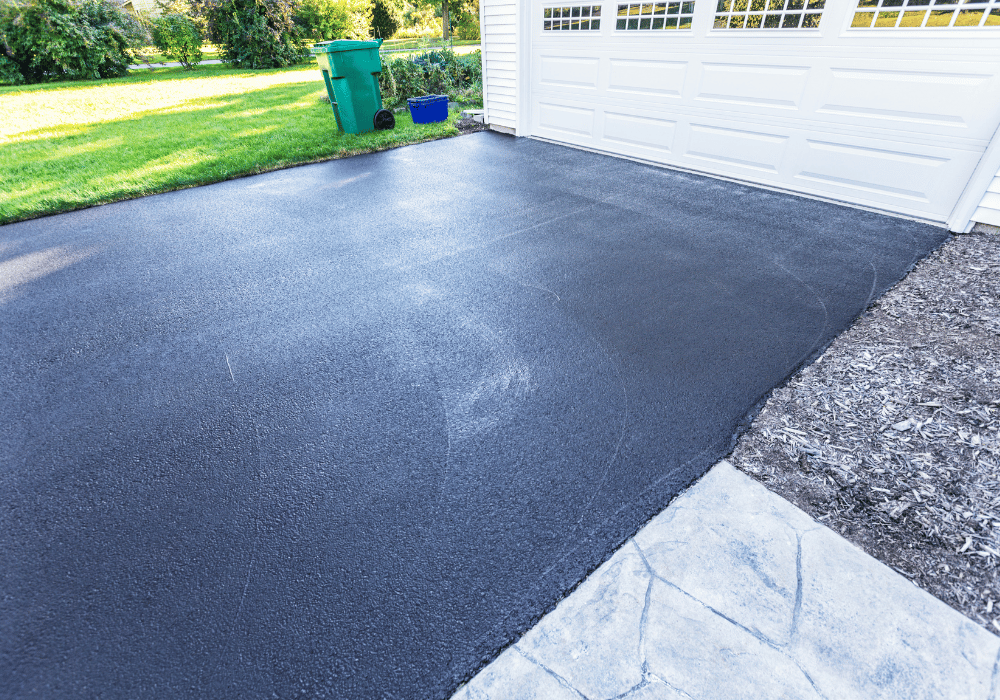A driveway is more than just a pathway to your home; it sets the tone for your property’s aesthetic, functionality, and durability. When it comes to selecting the right material for your driveway, homeowners often weigh options like gravel, asphalt, and concrete. Each material has its advantages and disadvantages, and what’s best for your home depends on factors such as budget, climate, and maintenance preferences. This guide will break down the pros and cons of gravel, asphalt, and concrete driveways, provide a clear comparison, and help you determine the right choice for your home. By the end, you’ll have a solid foundation to make an informed decision.
 Gravel Driveways
Gravel Driveways
Gravel driveways are a popular option for rural and suburban homes. Made from loose stone, gravel offers a rustic look that’s functional and affordable.
Pros of Gravel Driveways:
- Cost-Effectiveness
Gravel is one of the least expensive driveway materials available. With minimal upfront costs, this material is ideal for homeowners working with tight budgets.
- Easy Installation
Installing a gravel driveway is straightforward. Many homeowners can opt for a DIY approach by spreading gravel themselves, saving on professional installation fees.
- Good Drainage
Gravel naturally allows for excellent water drainage, making it a suitable choice for areas prone to heavy rainfall. Water doesn’t pool on the surface, reducing the risk of flooding.
Cons of Gravel Driveways:
- High Maintenance
Gravel driveways require consistent upkeep. Stones can shift and scatter over time, leading to uneven surfaces that must be replenished periodically.
- Not Ideal for Steep Slopes
Gravel is less stable on steep slopes, where heavy rains or downhill movement can result in erosion or stones sliding out of place.
- Snow Removal Challenges
Clearing snow from a gravel driveway is tricky, as traditional shovels or plows can displace the stones. This drawback makes it less convenient for regions with heavy snowfall.
Gravel driveways are best suited for homeowners seeking a cost-effective solution in well-draining, temperate climates.
Asphalt Driveways
Known for their clean and polished look, asphalt driveways are a common sight in suburban communities. They balance affordability and durability, making them a go-to option for many homeowners.
Pros of Asphalt Driveways:
- Durable
Asphalt is durable and can last up to 20 years with proper care. It holds up well under heavy vehicles and frequent use, making it ideal for families with multiple cars.
- Weather-Resistant
Asphalt performs exceptionally well in climates with fluctuating temperatures, as it expands and contracts slightly to prevent major damage.
- Relatively Low Maintenance
While not maintenance-free, asphalt requires less upkeep than gravel. Occasional resealing helps extend its lifespan and keeps it looking fresh.
Cons of Asphalt Driveways:
- Dark Color Absorbs Heat
Asphalt’s black surface absorbs heat, which can make it hot to the touch during summer months. This may be a drawback for areas with extremely warm climates.
- Susceptible to Cracking
Over time, asphalt can crack due to natural wear and tear, requiring repair or patching to prevent further damage.
- Professional Installation Required
Unlike gravel, installing an asphalt driveway is a job best handled by professionals due to its technical nature and reliance on specialized equipment.
For homeowners in need of a durable, weather-resistant driveway that balances cost and longevity, asphalt offers a middle-ground solution.
 Concrete Driveways
Concrete Driveways
Concrete driveways are synonymous with longevity and an upscale look. With a variety of finishes and design options, concrete can add significant curb appeal to your home.
Pros of Concrete Driveways:
- Long-Lasting
When properly installed and maintained, concrete driveways can last 30 years or more, making them a great long-term investment.
- Customizable
Concrete offers creative possibilities, from stamped patterns to colored finishes. This allows homeowners to customize their driveway to complement their property’s aesthetic.
- Adds Curb Appeal
A well-designed concrete driveway enhances the overall appearance of your home, potentially increasing its resale value.
Cons of Concrete Driveways:
- Higher Upfront Cost
Among the three materials, concrete has the highest initial installation cost. However, its longevity can make up for this expense over time.
- Prone to Cracking in Freezing Temperatures
Concrete is susceptible to cracking in colder climates due to freeze-thaw cycles. Regular sealing can mitigate this risk, but it’s an added cost to consider.
- Professional Installation Required
Like asphalt, concrete installation requires specialized skills and equipment, which means hiring experienced professionals is a must.
If lasting durability and superior aesthetic appeal are your priorities, concrete driveways are an excellent choice.
Gravel vs. Asphalt vs. Concrete Driveways: A Side-by-Side Comparison
To help you weigh your options, here’s a quick comparison of gravel, asphalt, and concrete driveways based on key factors:
|
Feature |
Gravel |
Asphalt |
Concrete |
|---|---|---|---|
|
Cost |
Most affordable, $1–$3/sq ft |
Mid-range, $3–$7/sq ft |
Most expensive, $5–$15/sq ft |
|
Durability |
5–10 years (with upkeep) |
15–20 years |
30+ years |
|
Maintenance |
High upkeep |
Moderate upkeep |
Low upkeep |
|
Installation |
DIY or professional |
Professional required |
Professional required |
|
Weather Suitability |
Excellent drainage, struggles in snow |
Weather-resistant, hot in summer |
Less ideal in freeze-thaw cycles |
|
Aesthetic Appeal |
Rustic and natural |
Clean and polished |
Stylish and customizable |
Choosing the right driveway material ultimately comes down to your needs, budget, and location. Here’s a quick recommendation based on specific priorities:
- Budget-conscious option: Gravel is the least expensive and easiest to install, ideal for rural or temperate regions.
- Balanced durability and cost: Asphalt offers a practical middle ground for most climates and is less prone to maintenance issues.
- Premium look and longevity: Concrete is perfect for those seeking aesthetic appeal and a long-term investment, especially in locations with mild to moderate climates.
No matter which material you choose, a well-installed and maintained driveway adds functionality and enhances property value. For homeowners looking to boost their property’s appeal and functionality, choosing the right driveway material is a great first step.

